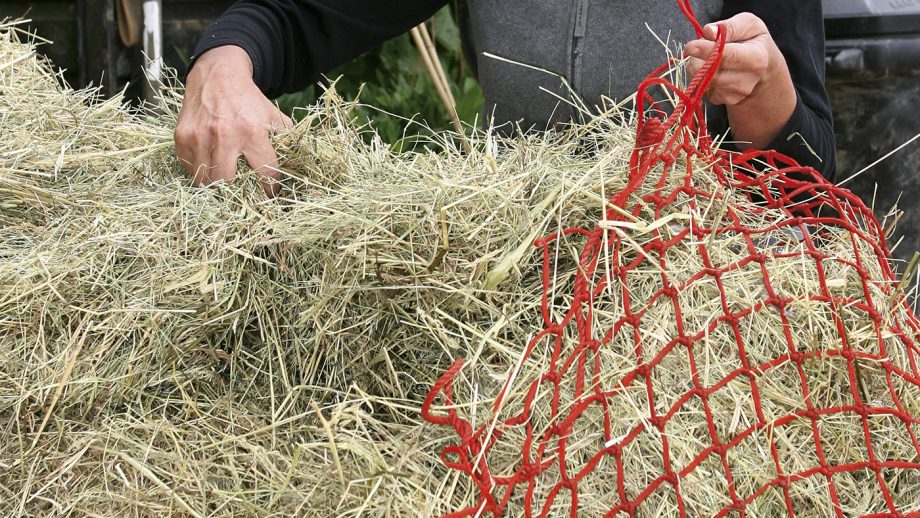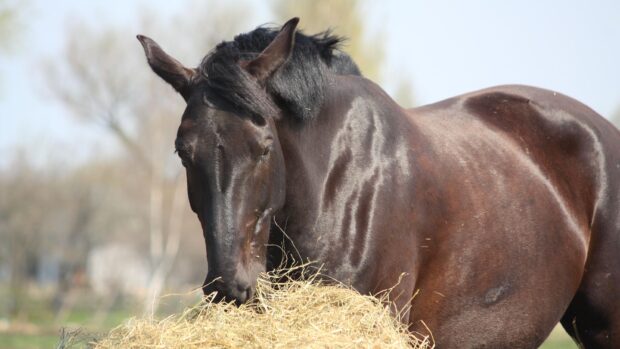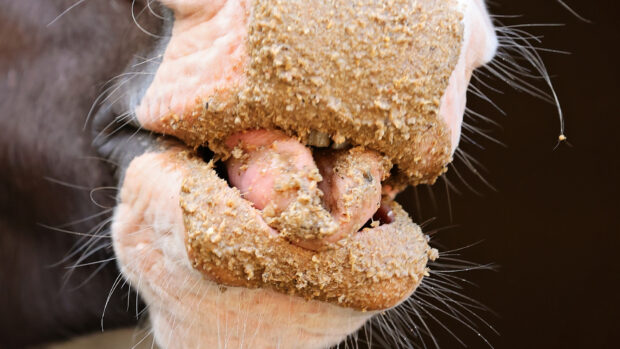Rachel Fraser speaks to Kirsten Holland, BVetMed(hons), MRCVS, of Paragon Veterinary Group and independent equine nutritionist, Clare MacLeod MSc RNutr, to find out more about whether horses need to be fed hay during the summer months.
Do horses out at grass need hay provided over the summer?
Kirsten explains: “This depends on the quality of the pasture, weather conditions through the summer and the condition of the horse in question.
“If the pasture is poor quality, the horses on the pasture don’t appear to be thriving, include a mare supporting a foal, non-native breeds, equines in hard work, or the weather conditions are particularly poor, then there may be a need for hay supplementation through the summer.
“In almost all cases, native pony breeds turned out 24/7 will not need hay supplementation during summer months.”
Clare agrees: “If a horse has free access to grass, they usually won’t need forage such as hay to be provided.”
What are the signs to look out for that indicate you should be feeding hay?
“Signs that hay supplementation may be necessary include horses on the pasture losing weight beyond an acceptable body condition score,” says Kirsten.
“In some cases, if horses are out 24/7, the pasture is poor and very bad weather is forecast, supplementing an amount of hay can help keep horses warm in these conditions.”
For horses stabled part of the time and turned out part of the time, how can owners decide how much hay to feed?
“This should be decided by how the horse is maintaining their weight. If they are overweight then only a small amount of hay should be fed, haynets can be doubled up so it takes a longer time for the horse to eat the hay and hay can also be soaked to reduce the sugar content,” explains Kirsten.
“Ideally, hay should have a sugar content of 11% or less, and if a horse is overweight it should be fed no more than 1.5% of its bodyweight in hay weight per day if the horse’s sole dietary intake is hay.
“This calculation does not take into account how much grass is being consumed. Obviously if the horse is turned out on grass at some point during the day, then most of this hay ration can be removed from the diet.
“Horses can consume their daily requirement of grass in a matter of hours. The pasture condition and horse’s body condition score should be considered and horses should be fed in a manner to maintain their body condition at an ideal score – 3 out of 5.
“The condition of the pasture will change through the summer depending on weather conditions, so hay rations should be changed alongside this. If pasture is thriving then the hay ration should be cut down.”
Clare adds: “If stabled for more than four hours, they will need some forage provided, even if they are overweight, in order to avoid stomach problems. Use the ‘four hour fast’ rule as a guide.
“Feeding hay can also help horses who suffer from digestive disturbance on too much or rich grass. These horses can be better off with restricted grass and being fed hay instead.”
If grass is grazed down short, do they need hay? Or are they getting enough by eating the fresh shoots of grass as they are coming up?
“Grass grazed short doesn’t necessarily mean that a horse needs hay supplemented. A paddock can look very short but in summer weather, the grass will still grow and be eaten off as it grows up,” says Kirsten.
“This means that the newest shoots of grass, which are the most nutritious, are constantly being eaten. In good weather, horses can obtain all of the nutrients they need from a very bare looking paddock.
“Breed and workload should also be taken into account when deciding on whether to feed hay or not.”
Continued below…
You might also be interested in:

When is this year’s hay safe to feed to your horse?

Subscribe to Horse & Hound magazine today – and enjoy unlimited website access all year round
However, just eating grass sprouts can be problematic for some horses, Clare explains: “If you are using a very well eaten down pasture to limit grass intake, feeding some hay is recommended so that the horse’s diet isn’t entirely rich grass sprouts which are low in fibre.
“Similarly, if you’re restricting grass to help a horse lose or maintain weight and their grass intake is below a healthy amount, some hay should be fed. The main sign to look out for is a very hungry horse. Soak hay to reduce its digestible energy content if they aren’t losing weight.”
For all the latest equestrian news and reports, don’t miss Horse & Hound magazine, out every Thursday




